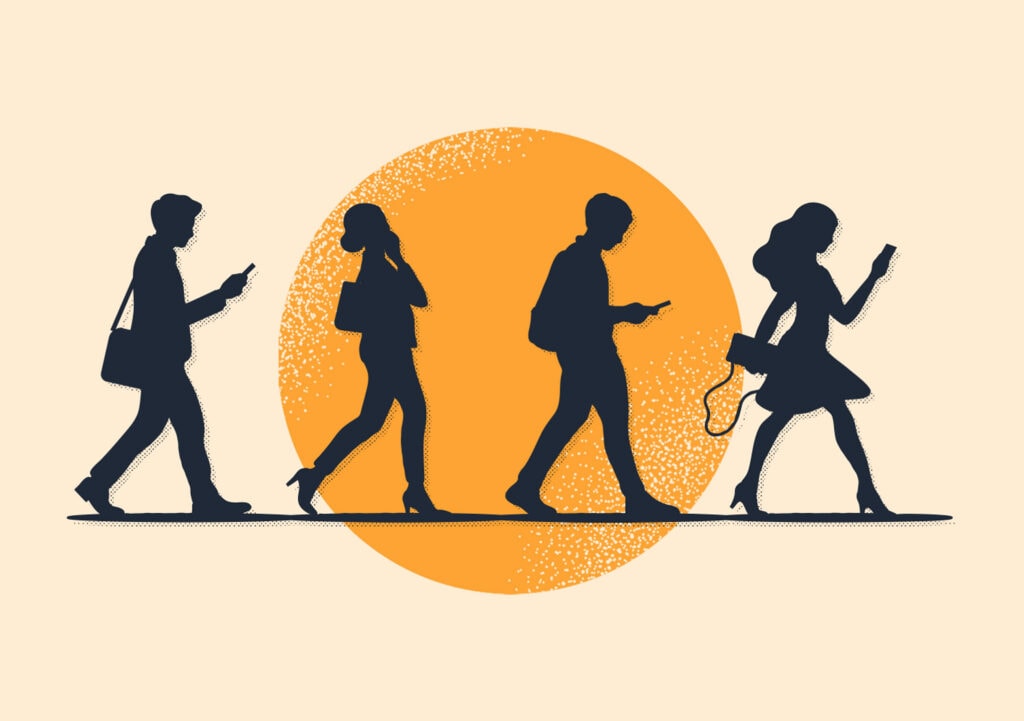Social media company Buffer surveyed 3,500 remote workers from around the globe to get their insights into the pros and cons of remote work. The third biggest struggle of working remotely—just below loneliness and communication struggles—was not being able to disconnect from work.
Smart phones, video chats, and instant messaging (IM) software have helped to keep remote employees connected and collaborating together while working from home.
And it may be too much of a good thing.
With employees continuing to work remotely from home during the COVID-19 pandemic, it’s important that HR managers espouse and promote policies that help employees unplug at the end of the workday. The aim is three-fold: To allow employees to recharge for another productive workday, to achieve work-life balance, and to reduce stress and the chance of employee burnout.
Reduce or ban after-hours communication, and do this with as few (ideally no) exceptions as possible.
Employees often feel pressured to mimic or respond in kind to their boss’s behaviour. If a direct report typically receives emails after the end of the workday, the instinct is to reply immediately and then continue checking for (and replying to) work emails during personal time.
By having clear remote-work policies that outline when and where communications should go out (i.e. only during work hours), it takes the pressure off everyone in your organization to always be on and helps make it possible to unplug from work.
Some exceptions apply, of course, but those should be limited to industries or job roles that require and demand immediate action (such as crisis management or certain media outlets).
If you frequently start (but don’t finish) a task right before the end of the workday, you might be finding yourself thinking about that task while you’re making dinner, washing dishes, or enjoying time with your family.
This phenomenon is what Sophie Leroy, a business-school professor at the University of Minnesota, calls “attention residue”, when thoughts about a previous task intrude at random times.
One simple way to avoid attention residue is to write out your to-dos for tomorrow as the final task for today’s workday. If you plan your week out in advance, you can review and confirm your tasks for tomorrow instead of writing them out.
While commutes are not high on anyone’s list of favourite things, they do serve one important purpose. Your commute on the way home can help you decompress from work and maintain a healthy work-life balance.
Now, instead of work and home, we have work at home. It’s important to signal to your brain that the work day is coming to an end through other rituals. Play a specific song, light a scented candle and write out or review your tasks for tomorrow (as detailed above) to help shift yourself from work mode into personal mode. Essentially, you’re using visual and auditory cues to teach your brain how to unplug from work.
After you’ve finished work, focus on an activity or hobby you love. It can be anything from watching an episode of your favourite show to putting together a puzzle—whatever you find relaxing or engrossing. Do the activity just after the end of your workday, to cement the separation between work and personal time in your mind.
Experts also recommend “separating” yourself from other minds, meaning staying offline for a while, taking a short walk by yourself or yoga/meditation to help your mind truly disconnect from work time.
A 2009 study conducted by the University of Sussex in the UK found that reading helps reduce stress levels by as much 68% so cozy up with a cozy mystery to help you unwind and unplug from work.
We’re all familiar with the expression ‘out of sight, out of mind’, meaning that we tend to forget things that aren’t in our immediate line of sight.
If you don’t have a dedicated home office space that you can leave at the end of the workday, try making room in a closet or sideboard to stash away your work laptop and/or work phone when you’re finished for the day.
If you use a desktop, try putting away as much equipment as possible, such as your mouse and keyboard, to make it more difficult to get back to work. Putting your work equipment away creates friction, meaning that it’s much harder for you to get back to work if the urge to jot down notes for an upcoming presentation hits you.
Do you get work notifications on your personal devices, such as Slack messages or emails? Turn notifications off until the start of the next workday so they don’t intrude on your personal time.
Another strategy to unplug from work when you’re working remotely from home is to create “no-work” zones: places where you never bring your work laptop or check your phone for emails. This helps you mentally separate work life and home life.



